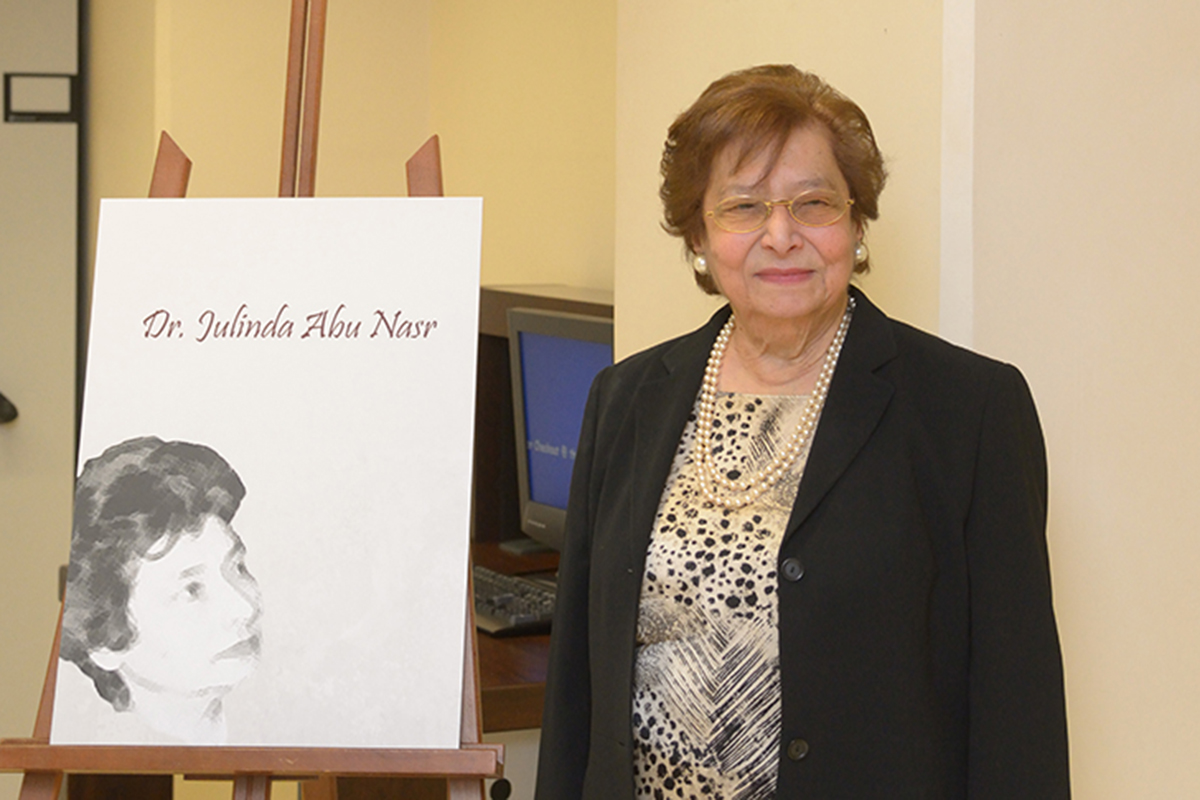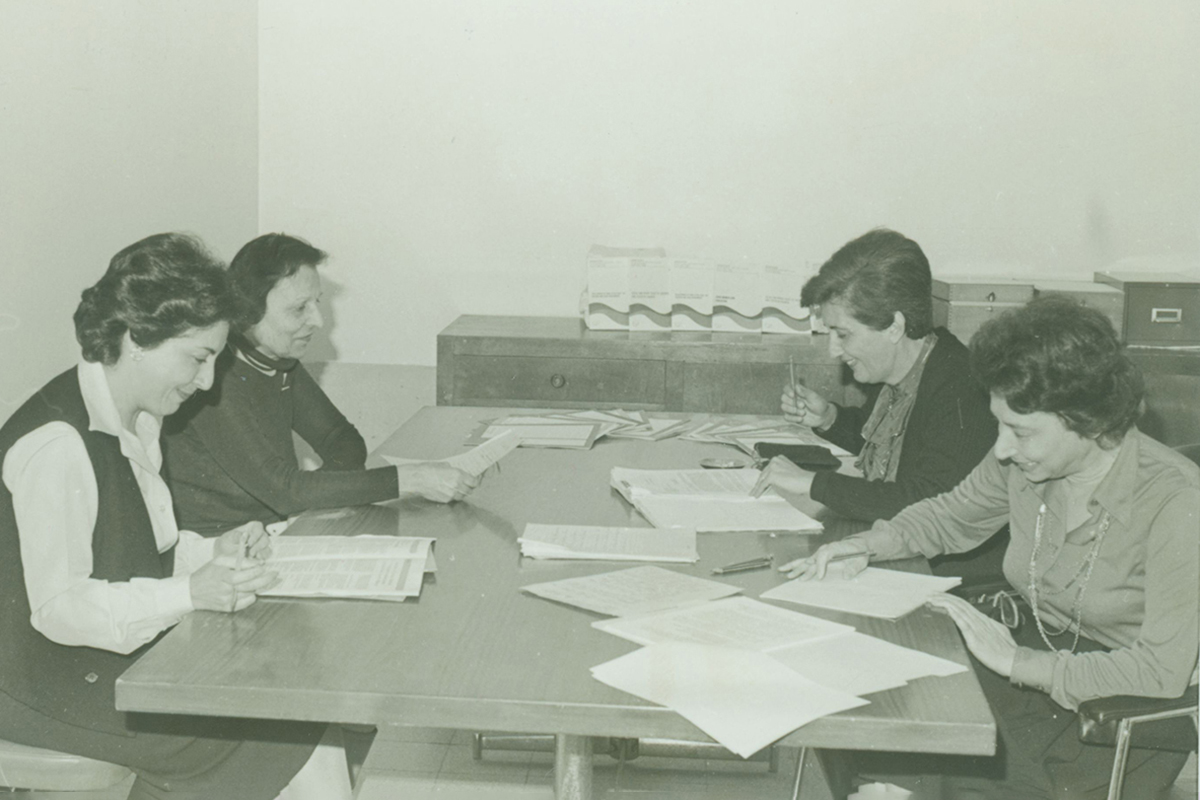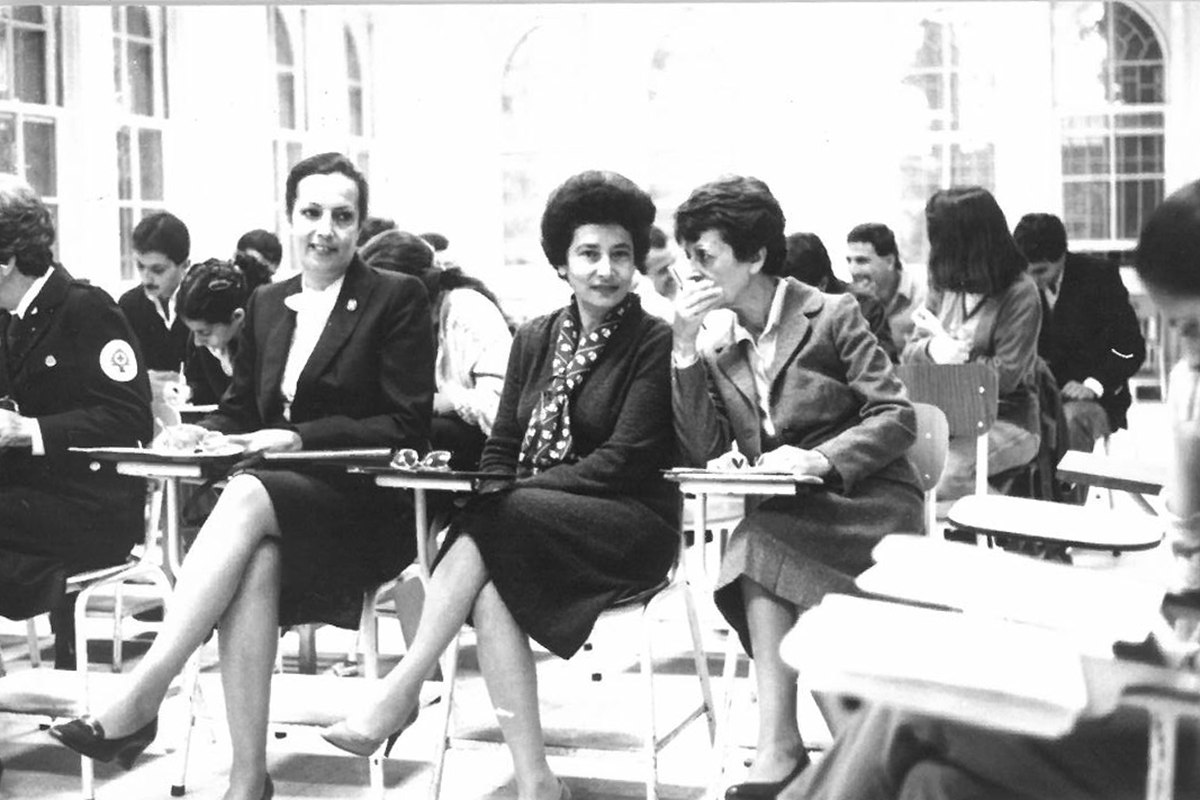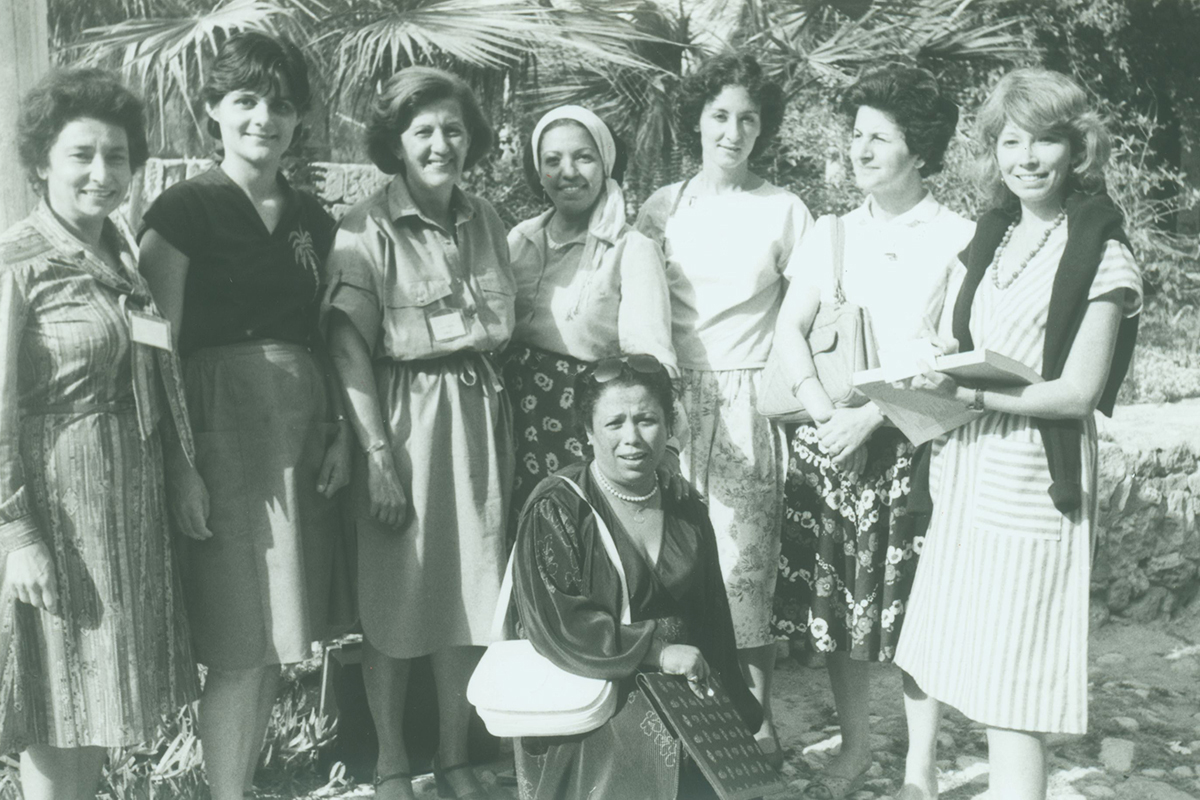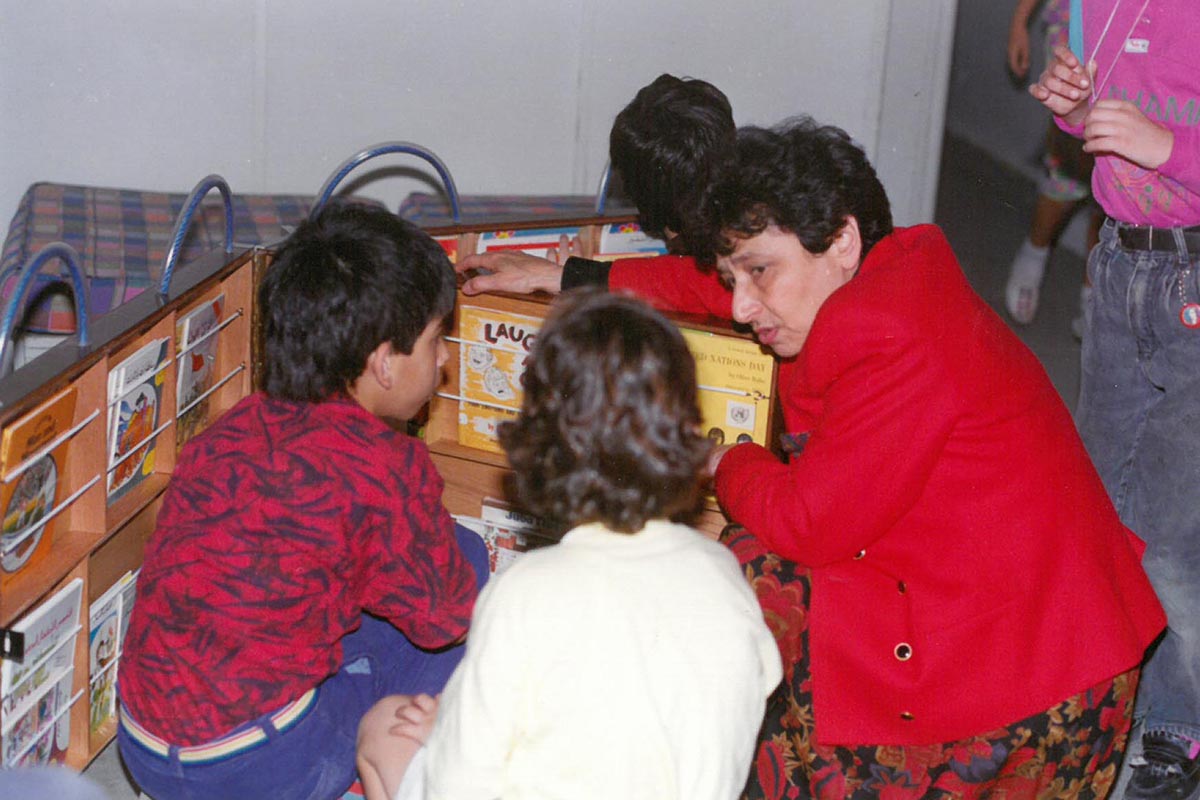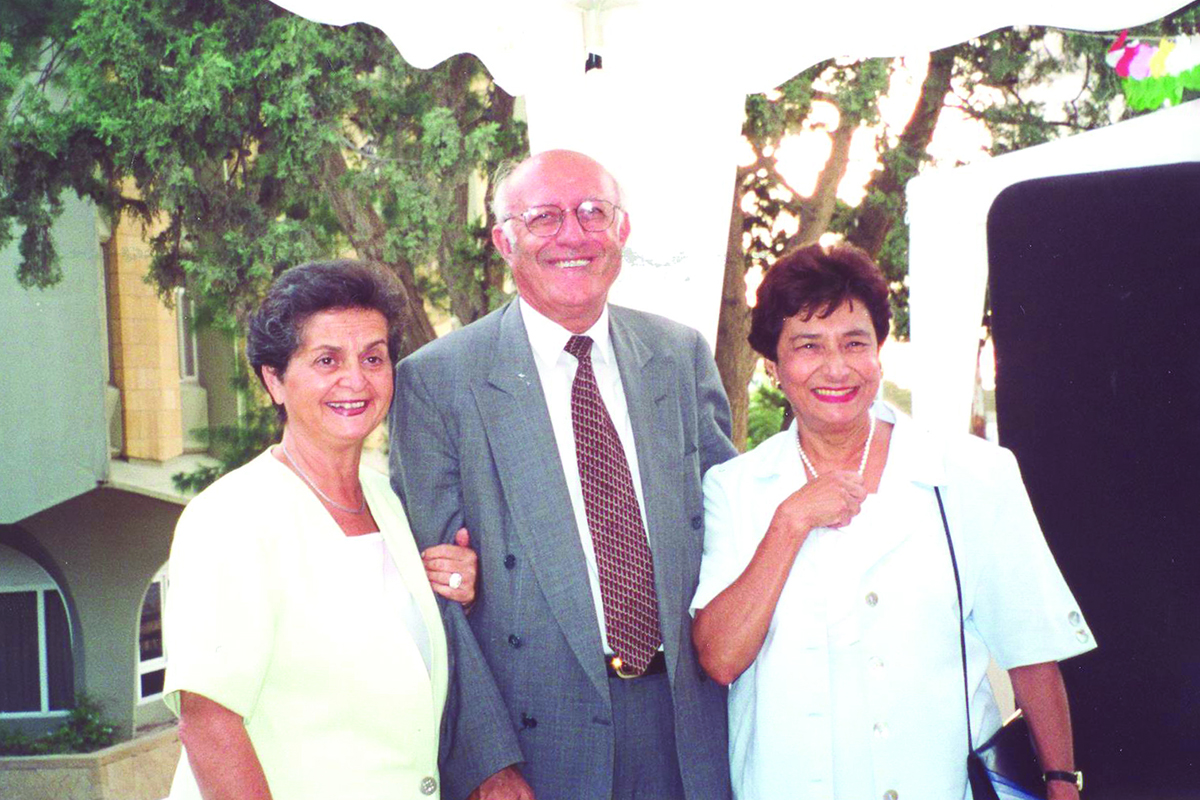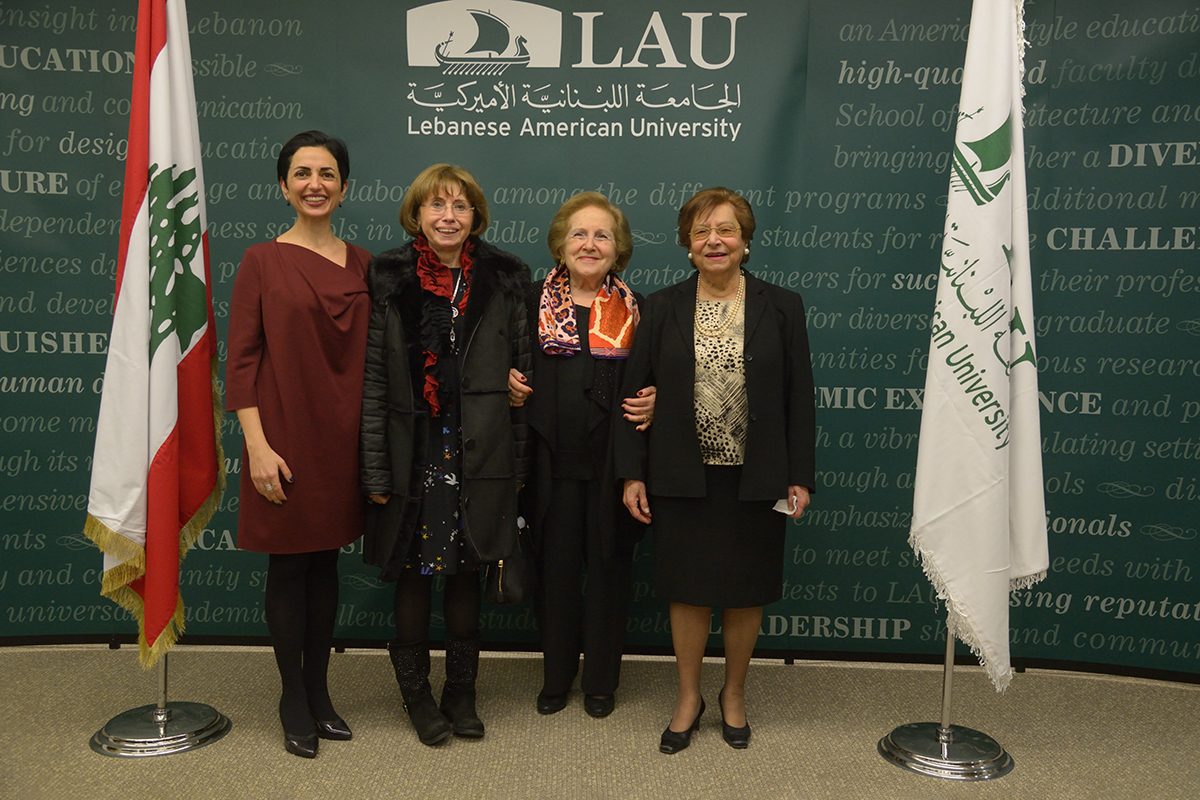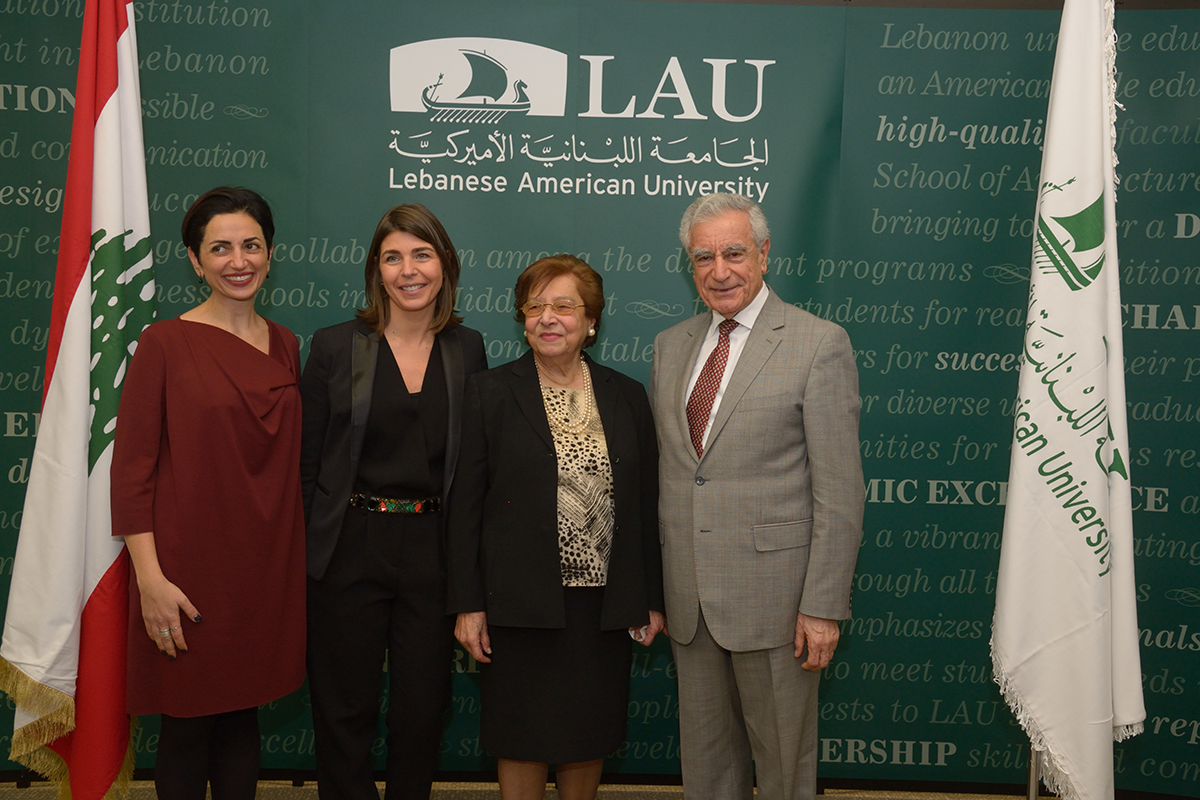In Memoriam: Dr. Julinda Abu Nasr (AA ’53)
LAU mourns the loss of a pioneer, educator, and champion of children’s development and women’s empowerment.
On Tuesday, March 5, 2024, LAU lost a revered member of its community, alumna and visionary Dr. Julinda Abu Nasr (AA ’53) who passed away at the age of 92.
In the 24 years that she served as founding director of the Institute for Women’s Studies in the Arab World—today’s Arab Institute for Women (AIW)—Dr. Abu Nasr transformed it from an academic and research center on women’s issues into a proactive agent of change, while fighting illiteracy and advancing children’s education.
She devoted her career to empowering Arab women, who were denied their rightful status in society, and improving underprivileged children’s quality of life through education.
In a tribute to Dr. Abu Nasr on her retirement published in the Fall 1997 issue of Al Raida— the institute’s flagship journal she launched in 1976—her successor at the institute and then-professor of English Samira Aghacy described her as having “an insatiable sense of perseverance and work ethics,” and “a passionate love for what she was doing [which] caused her to work furiously at all hours of the day and night.”
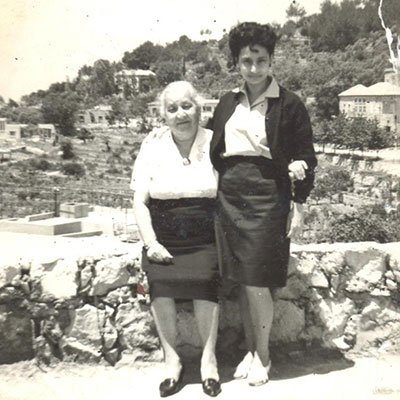
Born in the village of Rishmaya, Lebanon, in October 1931, Dr. Abu Nasr was educated at the American School for Girls in Sidon. She joined the Beirut College of Women—as LAU was known back then—in 1951 on a scholarship, supplementing her tuition by teaching part-time at the Neighborhood House educational center, where she launched a preschool program.
After her graduation in 1953, she went on to obtain a bachelor’s from Louisiana Tech, US, in home economics and child development and a master’s in the same subject from Oklahoma State University, before rejoining her alma mater to teach and run the university’s nursery.
In the early 1970s, she left Lebanon once again to pursue a PhD at Florida State University. On her return to the college in 1973, which had changed its name to Beirut University College (BUC), Dr. Abu Nasr was informed by the president, Dr. William Shechter, that she was to head the newly established Institute for Women’s Studies in the Arab World—the first of its kind in the region.
Two years into her tenure, following a trip to Egypt, the level of illiteracy among underprivileged women and children and the repression of women in the Arab world came into sharp focus for Dr. Abu Nasr.
Fundamental and practically oriented education, she wrote, was “the only means for helping Arab women to realize that they are entitled to a better life and to equip them with skills they need to fulfill their potential.”
As her vision for the institute shifted, and with the economic hardship and displacement that the Lebanese civil war left in its wake, she launched a set of developmental projects for women, which, over the years came to include vocational training, literacy programs and income-generating workshops and activities.
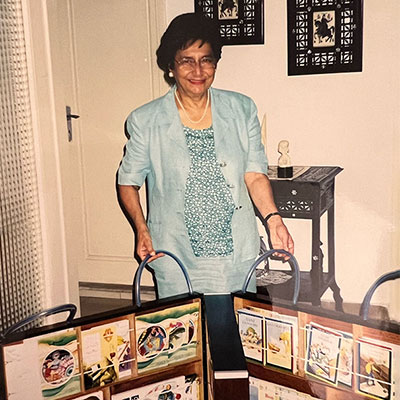
In the hope of alleviating children’s emotional, mental and physical distress during the war, Dr. Abu Nasr also established a portable library that distributed books to orphanages, schools, social centers, hospitals, and remote areas.
She traveled extensively— at one stage spending even months in the US, during which she met with UN agencies— to forge collaborations in research and activities that raise awareness of and improve the status of Arab women. She attended and organized conferences regionally and internationally with governments and NGOs.
As the institute mourns the loss of its founder and the pillar upon which it rested for 24 years, said AiW Director Myriam Sfeir, “her passionate dedication and thriving spirit will always be remembered. We promise to honor her remarkable legacy and carry the torch of her mission with heartfelt loyalty.”
“She was my mentor, role model, and the embodiment of dedication to this institution,” added Sfeir. “She used to jokingly say I married BUC and she indeed was wedded to this institution and to the institute.”
“Julinda Abu Nasr was gracious and generous in sharing her expertise on children’s development and awareness with the YWCA training programs,” said National YWCA Executive Director Mona Shahin Khauli. “She was sensitive, wise and humble, and will be remembered with love.”
Throughout her years as director of the institute, Dr. Abu Nasr continued to teach her courses, unwilling to give up what she considered to be her calling, and to run the nursery that evolved into the Early Childhood Center of today.
By the time she retired in 1997, Dr. Abu Nasr had authored 20 publications and built an 8,000-volume collection of women and gender studies, named in her honor, at the Riyad Nassar Library at the Beirut campus.
The number of lives she touched, however, is countless.
In his tribute, LAU President Michel E. Mawad wrote: “Dr. Abu Nasr blazed a trail for generations in the name of education, human rights, and women’s rights. As we mourn her loss, we pledge to safeguard the unique legacy she has left this institution.”
